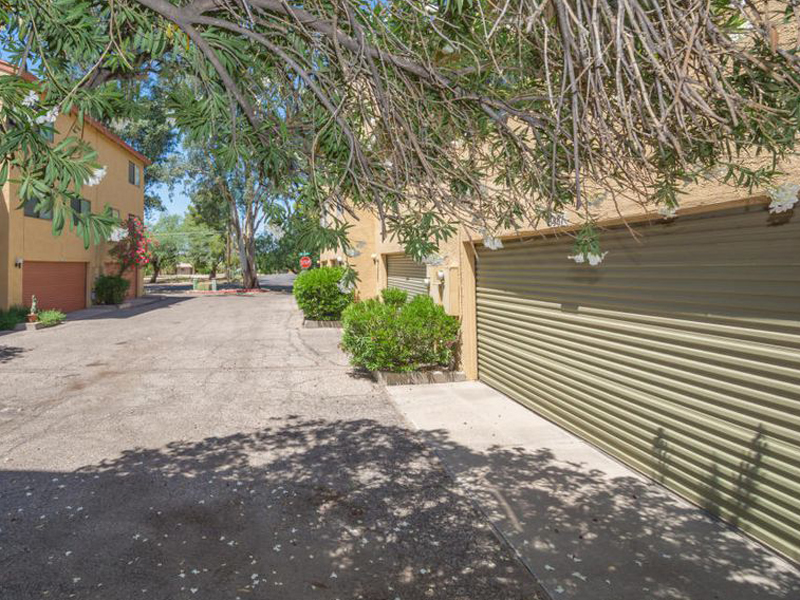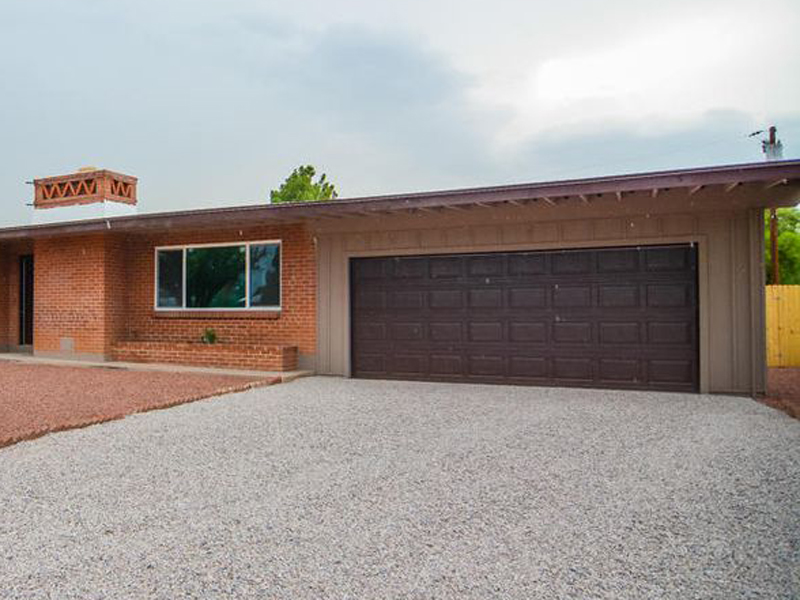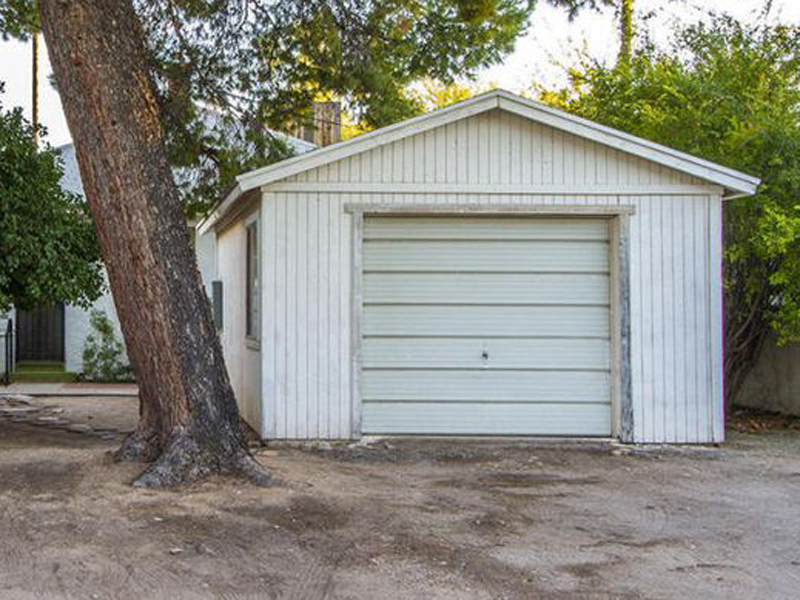Is Your Garage Door Stuck? Below's What to Do Initial
When your garage door won't open, begin with these crucial safety and security checks before attempting any kind of repairs. Initially, make sure no one is standing near the door and that cars are clear of the opening. Seek noticeable signs of damage like broken panels, bent tracks, or hanging cords. If you see a snapped spring or drastically harmed parts, stop promptly and call a specialist—-- these repairs need specialized tools and know-how to handle securely.

Check These 6 Points Prior To Calling a Specialist
Before thinking you require pricey repair work, run through this quick diagnostic checklist that fixes most garage door problems:
-
Power source: Verify the opener is connected in and the electrical outlet is functioning
-
Remote batteries: Replace dead batteries in your push-button control
-
Hand-operated lock: Examine if somebody unintentionally engaged the manual lock
-
Obstructions: Search for debris blocking the door's course or sensors
-
Emergency situation release: Guarantee the red emergency cable hasn't been drawn
-
Breaker: Confirm the garage circuit hasn't tripped
These easy checks solve approximately 70% of garage door problems without requiring expert treatment.
10 Common Reasons Your Garage Door Won't Open
Recognizing why your garage door opener isn't functioning assists you pick the appropriate option. Here are one of the most regular causes homeowners experience:
Dead remote batteries stand for the easiest solution—-- when batteries die, the remote can not send signals to the opener. Power blackouts or tripped breakers reduced electricity to the electric motor. Broken springtimes prevent the door from raising correctly and need prompt expert interest. Sensor imbalance causes safety and security systems to obstruct door procedure. Track blockages quit rollers from relocating smoothly. Electric motor overload triggers automatic shutoffs when the opener detects resistance. Limitation switch problems perplex the opener about door placement. Cable television damages interrupts the lifting device. Weather-related concerns influence door movement throughout severe temperature levels. Element wear from age progressively decreases system efficiency.
Problem # 1: Dead Push-button Control Batteries
When your wall surface button functions but your remote does not, dead batteries are normally the wrongdoer. The majority of garage door remotes use either 3-volt lithium or 12-volt alkaline batteries. Eliminate the back cover of your remote and inspect the battery kind. Replace with fresh batteries and evaluate the remote. If it still does not work, you might require to reprogram it to your opener. Consult your opener's manual for specific reprogramming guidelines, as the procedure varies by maker.
Problem # 2: Power Supply Issues
Garage door power issues typically stem from loosened connections or stumbled circuits. Examine that the opener is securely connected into its outlet—-- resonance can loosen up connections gradually. Evaluate the outlet with one more device to validate it's functioning. Analyze your home's breaker box for tripped circuits, especially if you have actually experienced storms or power fluctuations. GFCI outlets may have tripped and need resetting. If the opener has power however won't respond, the issue most likely lies somewhere else in the system.
Problem # 3: Broken or Damaged Springs
Busted garage door springs are amongst one of the most dangerous parts to manage. If you listen to a loud bang from your garage or see the door feels incredibly heavy when attempting to lift manually, a spring has actually most likely snapped. Torsion springs run flat above the door, while expansion springs sit on either side. Never try spring repair work yourself—-- these components save incredible tension that can cause significant injury or fatality. Specialist substitute typically costs $150-$300 yet ensures your security.
Problem # 4: Obstructed Safety Sensors
Modern garage doors feature security sensors that stop closure when objects are discovered. These sensing units can quit the door from opening up if they're unclean, misaligned, or blocked by particles. Clean sensor lenses with a soft cloth and make certain absolutely nothing blocks the unseen beam of light between them. Inspect that sensors are properly lined up—-- the majority of have sign lights that reveal connection condition. Sensor issues usually fix with basic cleansing and adjustment.
Trouble # 5: Track Obstructions or Damages
Garage door tracks overview rollers as the door moves up and down. Dust, debris, old grease, or little things can jam the system. Evaluate tracks visually and get rid of any kind of obstructions with a brush or cloth. Look for dents, bends, or warping that can hamper smooth operation. Small track adjustments are possible for convenient home owners, however considerable damages calls for professional repair service to prevent more issues or security hazards.
Issue # 6: Garage Door Opener Electric Motor Issues
When the garage door electric motor runs but the door doesn't relocate, a number of concerns could be accountable. The motor may be overwhelmed and shutting down as a precaution. Gear wear, especially in older units, can protect against correct procedure. Chain or belt drive issues impact power transmission. If you hear uncommon grinding, clicking, or humming audios, quit using the opener promptly. Motor repair services often set you back greater than substitute, especially for devices over one decade old.
Detailed Do It Yourself Troubleshooting Guide
Follow this methodical strategy to garage door fixing while focusing on safety and security throughout the process:
Step 1: Examine the wall surface switch initially. If it works but the remote does not, concentrate on remote issues. If neither jobs, check power supply.
Step 2: Take a look at the manual launch cable. If it's been drawn, the opener is disengaged from the door. Push the trolley back to reconnect.
Step 3: By hand test the door by disengaging the opener and trying to raise the door by hand. It needs to relocate smoothly and stay in area when half-open.
Tip 4: Evaluate visible components for damages, paying unique focus to springtimes, wires, and tracks.
Step 5: Inspect all safety how to safely adjust garage door spring tension attributes including sensing units, limitation switches, and auto-reverse functions.
Step 6: Test various controls (remote, wall switch, keypad) to isolate the issue resource.
Constantly use safety glasses and job handwear covers when performing inspections, and never attempt repair work on springtimes or high-tension elements.
When to Call a Specialist vs. do it yourself Solutions

Understanding when to call a garage door professional versus attempting DIY repair services secures both your safety and your budget. Take care of these issues yourself: dead remote batteries, power supply problems, minor track cleansing, sensor cleansing and alignment, and standard lubrication.
Never ever attempt these fixings yourself: spring replacement or modification, cable repairs, significant track adjustment, electrical wiring problems, opener electric motor replacement, or any repair work involving high-tension elements. Specialist professionals have actually specialized devices, training, and insurance to manage dangerous fixings securely.
Take into consideration repair prices versus substitute expenses, particularly for doors over 15 years of ages. Modern garage doors provide better safety features, power effectiveness, and dependability than older versions.
Emergency Garage Door Solutions
When you're stuck with a garage door that won't open and need instant accessibility, follow these emergency situation procedures:
Handbook Procedure: Draw the red emergency situation launch cord to disengage the opener. This enables hand-operated procedure however calls for correct technique to prevent injury. Raise the door gradually and uniformly, using leg muscle mass instead of your back. Many household doors evaluate 100-150 pounds, making them manageable for a lot of grownups.
Short-term Repairs: If the door opens manually however won't stay up, prop it open with sawhorses or clamps—-- never use your body or lorries as assistances. For doors that will not close totally, guarantee the opening is secured if you must leave.
Emergency situation Service: Several garage door companies offer 24/7 emergency situation service for circumstances entailing protection issues, caught cars, or complete system failings. While extra costly than normal service telephone calls, emergency repairs offer prompt solutions when needed most.
Security Warning: What NOT to Do
Garage door security requires understanding dangerous repairs that must never ever be tried by homeowners:
Never ever attempt to fix springtimes—-- they keep enough power to cause deadly injuries when they break or are incorrectly taken care of. Do not compel a stuck door—-- this can damage the opener, tracks, or door panels, producing extra pricey problems. Avoid bypassing safety attributes—-- sensing units and auto-reverse mechanisms prevent significant injuries and residential or commercial property damages.
Don't disregard unusual sounds—-- grinding, scraping, or banging sounds indicate problems that aggravate with time. Never utilize the door if wires are torn or damaged—-- the door could drop unexpectedly. Don't attempt electric repairs unless you're a certified electrical contractor—-- garage door openers utilize both 120V home current and low-voltage control circuits.

Preventive Upkeep to Prevent Future Problems
Normal garage door upkeep prevents most typical problems and expands system lifespan significantly:
Regular monthly Jobs: Visual evaluation of all parts, evaluating auto-reverse security attributes, inspecting and tightening up equipment, and cleaning tracks and sensing units.
Quarterly Jobs: Lubing all moving parts with suitable garage door lubricant, screening handbook operation, and checking weather condition securing.
Yearly Jobs: Specialist examination and tune-up, springtime modification if required, and opener upkeep consisting of belt or chain modification.
Seasonal Tasks: Preparing for weather condition extremes, examining insulation, and adjusting opener setups for temperature level adjustments.
Regular maintenance costs much less than emergency repairs and makes sure dependable operation year-round.
Garage Door Won't Open Frequently Asked Questions
Why won't my garage door open with the remote however works with the wall button?
This typically suggests dead remote batteries, signal disturbance, or the need to reprogram the remote. Examine batteries initially, then consult your opener manual for reprogramming directions.
Can I by hand open my garage door if the power is out?
Yes, draw the red emergency situation launch cable to disengage the opener, then raise the door manually. Be prepared for the door's complete weight and lift with proper strategy to avoid injury.
Just how do I understand if my garage door spring is broken?
Indicators include a loud bang from the garage, the door sensation exceptionally hefty when lifting manually, noticeable gaps in the spring coils, or the door just opening up a few inches before quiting.
Is it secure to use my garage door if it will not open all the way?
No, partial procedure suggests mechanical problems that can get worse suddenly. Quit utilizing the door and have it evaluated by a specialist to stop more damage or injury.
What should I do if my garage door opens but will not close?
Check safety sensing units for blockages or imbalance, examine the tracks for particles, and check the auto-reverse feature. If these do not resolve the problem, seek advice from a specialist.
How much does it set you back to deal with a garage door that will not open up?
Costs differ extensively depending on the problem: battery substitute ($5-$10), expert medical diagnosis ($50-$100), spring replacement ($150-$300), or opener replacement ($200-$500).
Can weather influence my garage door's capability to open?
Yes, severe cold can thicken lubricating substances and influence metal elements, while warm can cause growth issues. The majority of troubles settle as temperature levels normalize, yet persistent problems may require expert attention.
Why does my garage door open up a few inches after that quit?
This normally suggests damaged springs, limit button problems, or track blockages. The opener's security functions stop operation when resistance is discovered, avoiding damage to the electric motor or door.
Get Expert Assist for Complex Concerns
When do it yourself repairing does not fix your garage door issues, professional service technicians supply the know-how and tools needed for secure, lasting repair services. Qualified professionals detect concerns properly, make use of manufacturer-approved components, and supply service warranties on their work.
Specialist services include: detailed system examinations, spring and cable television replacement, opener repair and substitute, track placement and substitute, electric troubleshooting, and emergency solution phone calls.
What to expect: ahead of time pricing, certified and insured service technicians, same-day solution for many repair services, and follow-up upkeep recommendations.
Many garage door business use cost-free price quotes for significant fixings and can provide instant options for urgent problems influencing home security or lorry gain access to.
Getting Your Garage Door Working Again
A garage door that will not open doesn't need to destroy your day or damage your budget. Beginning with basic troubleshooting actions like examining power, changing batteries, and checking out for apparent blockages. Many issues have quick DIY options that restore typical procedure within minutes.
Nonetheless, recognize when professional help is needed—-- particularly for spring-related issues, electric issues, or complicated mechanical failures. Trying hazardous repair work yourself risks severe injury and often develops much more costly troubles.
Normal maintenance prevents most garage door issues and makes sure dependable procedure for several years ahead. When troubles do happen, resolve them promptly to avoid even more costly fixings and maintain your home's security and convenience. Whether you need a straightforward battery replacement or total system overhaul, options exist to get your garage door working efficiently once again.